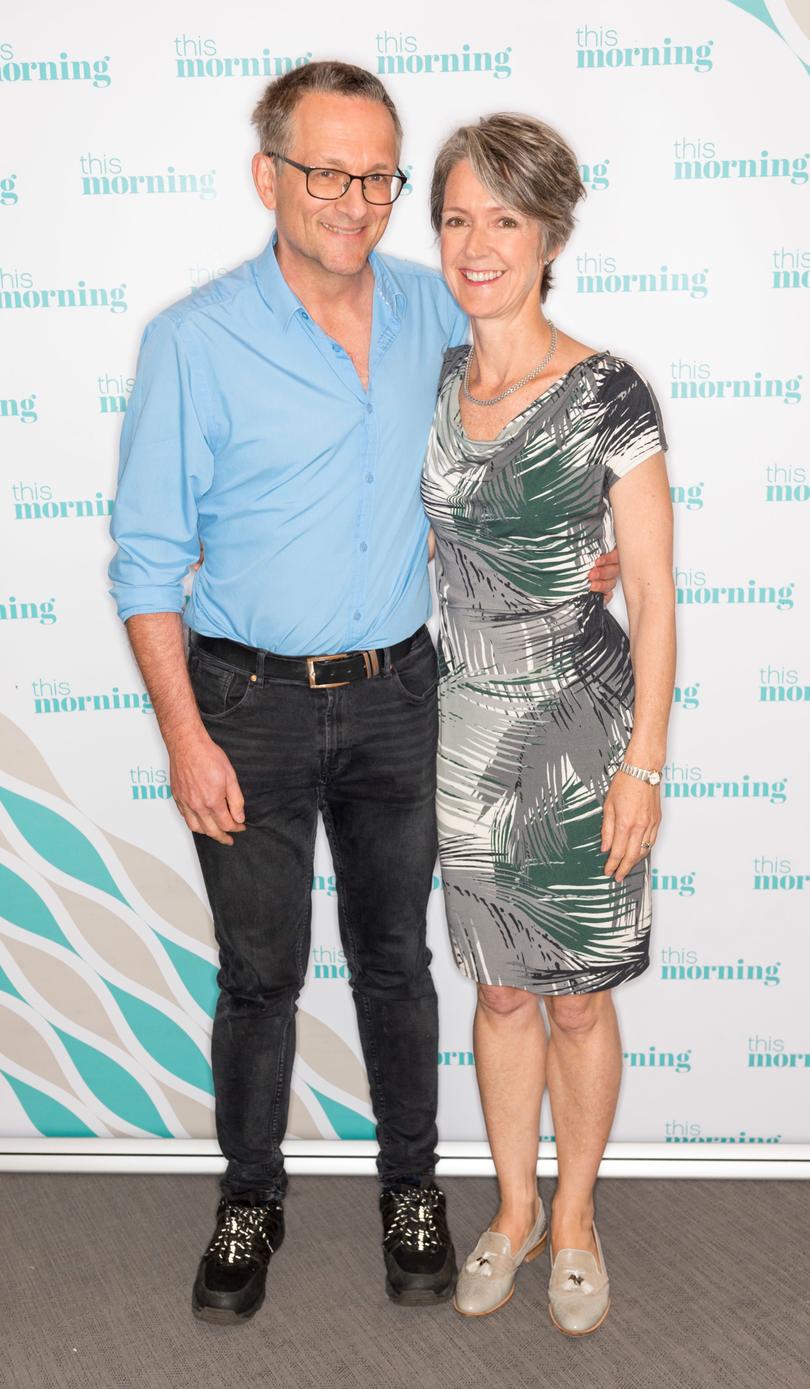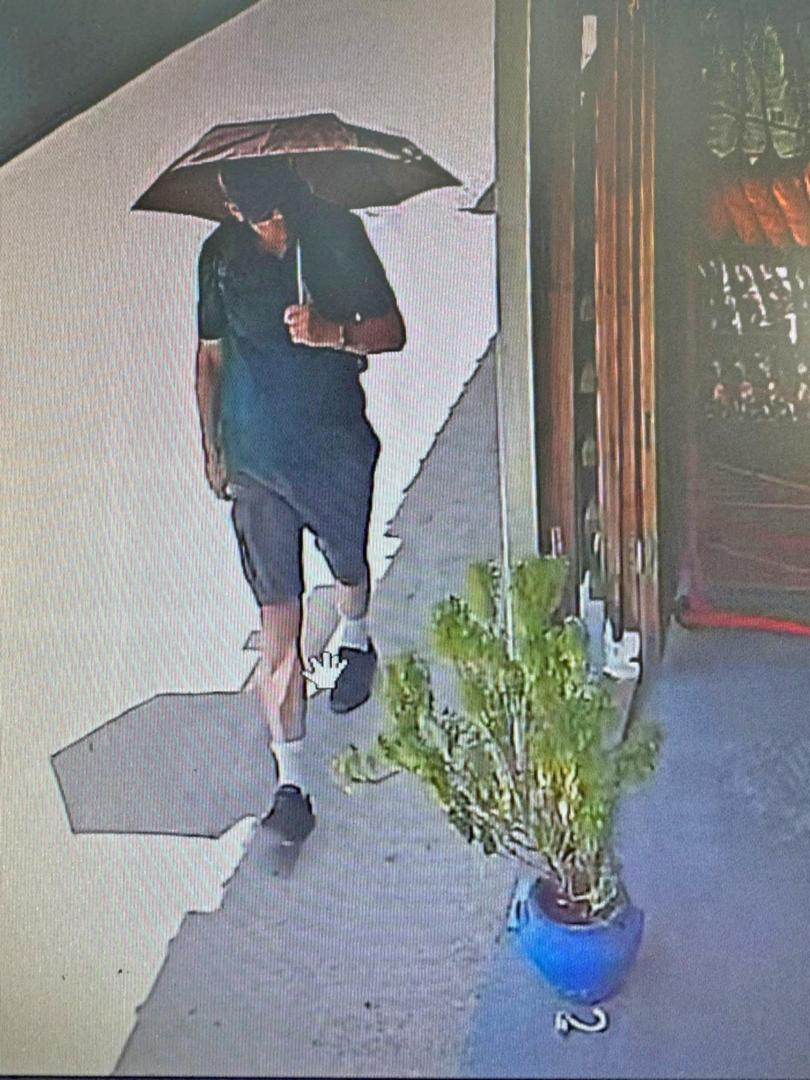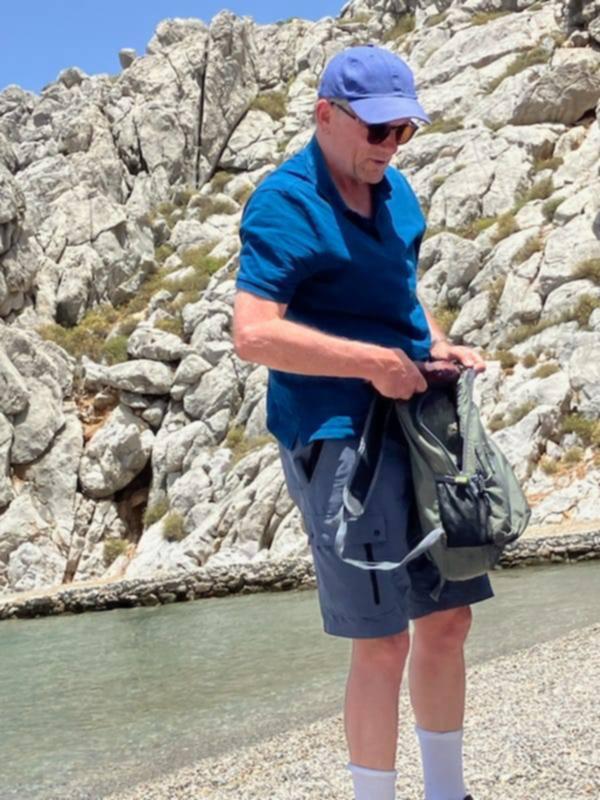Michael Mosley obituary: A medical maverick who loved making the world a better place
Michael Mosley, the doctor beloved by millions of readers and TV viewers for his revolutionary diet advice, waged a one-man war on conventional wisdom. And he loved every second of it.
Michael Mosley, the doctor beloved by millions of readers and TV viewers for his revolutionary diet advice, waged a one-man war on conventional wisdom.
His career on screen was spent challenging stale ideas, bringing his talents of wit, gusto and lateral thinking to testing theories that often seemed improbable at first. More than that, no notion was championed or discarded until he had tried experiments on himself... with often unpredictable results.
He told us how to reverse type 2 diabetes, how to lift low moods by changing the way we sleep and breathe, how to trick our bodies into mistaking hunger for starvation, and even how to make black pudding using our own blood.
Sign up to The Nightly's newsletters.
Get the first look at the digital newspaper, curated daily stories and breaking headlines delivered to your inbox.
By continuing you agree to our Terms and Privacy Policy.His sense of adventure and unquenchable scientific curiosity sometimes led him to put himself in danger by accident.
As yet, there is no way of knowing if this irrepressible side of his character contributed in any way to his death. Dr Mosley, 67, was found by journalists, more than four days after he was reported missing when he failed to return from a hike on Wednesday afternoon while holidaying on the Greek island of Symi in the Dodecanese, north of Rhodes.
According to a friend’s appeal on Facebook, Dr Mosley set off at 1.30pm last Wednesday from St Nicholas beach in the north of the island, a popular tourist spot with a stretch of warm, shallow water lapping the sands.
Six hours later, after he had not arrived back at his lodgings, his friends raised the alarm — informing police and coastguards who began a huge emergency search operation. CCTV sightings captured him walking briskly in shorts and a short-sleeved shirt — every inch the Englishman abroad, with long white socks and a purple umbrella for a parasol in the 37C heat.
One fellow tourist who noticed him said he “cut a jaunty air”. That echoes what viewers have come to expect of his TV persona, which combined intelligence with an almost childlike glee in testing medical theories.
That trait could lead him into difficulties. On one previous holiday, he ended up in hospital with total memory loss, thanks to a fascination with the health benefits of extreme cold. After interviewing the Dutch guru Wim Hof, who advocates immersing the body in ice-cold water, he decided to test the theory himself.
At first, he began turning the tap to “cold” in his shower and enduring the blast for 40 seconds.
Then, after researching the science more deeply, he began to experiment with volunteers — testing the different pain thresholds of subjects by asking them to plunge their hands into ice buckets, for example.
As with all his research, he never asked anyone to attempt a trial that he had not tried himself.
Then disaster struck. On a family holiday in Cornwall in 2021, he went out on a boat with his wife, Dr Clare Bailey and decided to swim back to shore. The chilly Atlantic waters sent his nervous system into shock.
“I thought, I’m going to beat Clare back to shore,” he recalled last year.
“The next thing I know, I’m in casualty. Apparently I’ve swum back, Clare has caught up, but I was looking really vacant and I clearly had no idea who she is or who I am or where I am. Though I kept on repeating: ‘I have a wife and four children.’

“I got a thorough examination and the consultant said: ‘You have something called transient global amnesia, which is relatively rare — but it’s brought on by swimming in cold water.’
“It’s caused by a change in blood pressure and blood flow to the brain. My memory banks were entirely wiped for about two or three hours and then gradually came back.”
Despite this, he continued to experiment with ice-cold showers.
The urge to use his own body as a testing ground for counter-intuitive theories was too strong to resist.
The most successful of these experiments, and one that changed his life in multiple ways, was the 5:2 theory — the radical idea that, by fasting two days a week, it was possible to eat normally on the other five (and even indulge in sugary, fatty treats) and lose a dramatic amount of weight.
Forced into starvation mode, the body starts burning its own fat to survive — so that excess calories pass through the system instead of turning to flab.
Though initially greeted by most nutritionists with scepticism, who dismissed the diet as too good to be true, the method proved spectacularly successful for Dr Mosley himself. His book The Fast Diet, co-written with journalist Mimi Spencer and published in 2012, recommended a stringent regime on two days of the week, with just 600 calories for men and 500 for women.
Celebrities who adopted it reported astonishing results. The U.S. comedian Jimmy Kimmel shed 25lb (more than 11kg) in a few months. Actor Benedict Cumberbatch used the method to achieve his hollow-cheeked look for the BBC1 drama Sherlock.
Dr Mosley first decided to investigate the diet after a blood test revealed he was in the early stages of type 2 diabetes.
“That was a nasty shock,” he said, “because my overweight dad had developed diabetes in his 50s and died of diabetes-related illnesses at the relatively young age of 74. I didn’t want to go down the same path.
“So I set out to find out if there was a drug-free way to ‘cure’ my diabetes. Periodic fasting sounded so interesting that I persuaded the BBC to let me make a science documentary with myself as the guinea pig. It was called Eat, Fast And Live Longer.”
The programme, shown as part of BBC2’s documentary series Horizon, featured interviews with experts such as Professor Valter Longo from the University of Southern California and Dr Krista Varady from the University of Illinois.
That became the template for a series of shows, bolstered by the remarkable personal success of his 5:2 diet — he lost 20lb and his blood sugar levels fell to normal, safe levels.

“This was revolutionary stuff,” he said, “as most doctors believe type 2 diabetes is incurable and that the only way to treat it is with drugs.”
His results were so dramatic that the NHS website, which had initially dismissed 5:2 as a “fad diet”, added it to its “Top Diets review”, and said: “Sticking to a regimen for two days a week can be more achievable than seven days, so you may be more likely to persevere and lose weight.”
Dr Mosley became an evangelist for the method, promoting it in the Daily Mail newspaper.
Further research revealed what made the regime so effective, he said. “The main reason I managed to knock my diabetes on the head was that I had lost a lot of weight, fast. Professor Roy Taylor, a diabetes specialist at Newcastle University, has done studies showing that if you lose over 10 per cent of your body weight (which I had), the fat is drained from your liver and pancreas, and your body is restored to its former health.”
He refined the diet, raising the calorie limit to 800 on fast days, and urging people to go 14 hours a day without eating — having an evening meal at 6pm, for example, and then fasting until breakfast at 8am. For those who needed a crash diet, he recommended 800 calories every day for weeks or even months.
All this flew in the face of traditional advice, which was based on cutting out fats and carbohydrates, and restricting calorie intake without actually fasting.
But as Dr Mosley liked to point out: “On my first day at medical school, the dean said to us: ‘You’ll study here for six years but within ten years most of what you’ve learned will be out of date.’ He was right.”
The dean also predicted that four of the 100 new students would marry each other. He was right about that, too — Michael and Clare met at University College London Medical School. One of the best nights of his life, he said, was the first gig they went to together, to see Bruce Springsteen.
Even the decision to be a doctor was unexpected and a surprise to his parents. Born in 1957 in Calcutta, Michael Mosley was sent to boarding school in England at the age of seven.

As a child, his health was indifferent: at four months, he had contracted Asian flu. “My mother tells me I was extremely ill and for a while it was touch and go,” he said. The disease left him with weakened lungs: “Chest infections tend to linger.”
As a student at Oxford, he returned to India while reading moral philosophy, but lost any urge to adopt a religion.
“I looked at Buddhism,” he said, “but I never found a faith I wanted to stick with.”
After graduating in Politics, Philosophy and Economics, he spent two years in banking, but hated it.
His goal when switching to medicine was to become a psychiatrist and help people with mental illness. Shortly after qualifying, however, he became disillusioned with this, too, and decided to try his hand as a TV producer. “I discussed it with people in the media before I jumped,” he said. “And they all said: ‘No! No! Don’t do it, it’s a terrible thing to go into, stick with the noble art of medicine.’”
In the event, of course, he ended up doing both, though he always pointed out he had never practised as a GP.
Whatever he did, it was with Clare by his side. The obvious devotion of the couple touched millions who were gripped by anxiety this week as the search continued. On Saturday, his wife of nearly 40 years spoke with naked anguish of living through “the longest and most unbearable” days of her life.
Despite Dr Mosley’s obsession with health, he always displayed a surprisingly relaxed attitude to life’s little luxuries.
“I am definitely not safe around milk chocolate,” he said. “I’ll eat a whole bar in one go. I have even been known to steal my daughter’s Easter eggs . . . and replace them. Sinful!”
Alcohol was another pleasure, in moderation. “I have a glass of wine or two five nights a week, anything as long as it’s red. I have decided not to educate my taste buds because I don’t want them to get expensive.”
But he never smoked — a healthy choice for which he thanked his father, who bet him £100 at the age of 11 that he wouldn’t get to the age of 18 without getting hooked on cigarettes.
“It seemed like an inordinately large sum of money . . . and I was a very square teenager,” he joked.
Though he was an energetic walker, the gym held no attraction. “Most mornings, I do 35 press-ups and 25 squats. If I’m in London and the journey is under ten miles, I cycle.”
People often stop me in the street, and I really enjoy finding out what’s going on with them. It’s a fantastic feeling when people tell you that you have helped to turn their lives around.
He was open in discussing the worst threat to his health — chronic insomnia, caused by stress as well as a genetic predisposition. “I suffer from catastrophic thinking,” he told the Mail five years ago.
“I used to worry about the children when they were younger. Now that they have all turned out OK, I worry about my work — did I say the wrong thing on a chat show, write the wrong thing in a book? What if someone loses too much weight and makes themselves ill? My work is utterly rooted in science, but people are people and they can do crazy things.”
Insomnia became such a burden that he published a book, 4 Weeks To Better Sleep, detailing all the systems he had tried. His conclusion was that what mattered most was not how many hours we spend in bed, but the quality of the sleep itself — what he called “your sleep efficiency”.
Long hours of wakefulness and a natural inclination to philosophy forced him to confront life’s toughest questions.
He has sometimes talked to journalists with characteristic insouciance about death: “I would like to die surfing or sky‑diving. I wouldn’t mind falling off my bike and going under a bus either, something short and sharp — with apologies to the driver.
“Would I ever kill myself? I would not rule it out. I can imagine things going badly wrong, a catastrophic illness, a stroke, a cancer. I would not want to be a burden but it would utterly depend on Clare. It’s a decision I would take with her.”
That willingness to confront any idea head-on was the driving force of his career. His enthusiasm was legendary. One friend said: “Michael never stops talking. He’s like a podcast on legs.”
Filming a segment on the physiology of fear for one of his dozens of shows, he defied his claustrophobia by going caving — and became wedged in a crack in the rocks.
“I absolutely freaked,” he admitted. “It obviously made good television because there was a lot of screaming.”
After that, though, he felt uncomfortable even in lifts and planes, and was unable to go through with an MRI brain examination inside a coffin-like scanner. Consequently, those who knew him well were dubious when the Greek authorities announced on Saturday that they were investigating the suggestion he had wandered into a complex of caves known as the “Abyss”.
It seemed unlikely he could be there — and indeed his body, when it was discovered today, was above ground. By that stage, though, the rescuers were willing to consider any explanation, however unlikely.

It’s an approach of which he would have approved, since he tackled science in exactly the same open-minded way. For a documentary called The Wonderful World Of Blood, he made and ate a black pudding using his own red corpuscles. “I don’t think it will take off as a national dish,” he announced, “but it’s pretty nutritious — rich in iron, protein and vitamin C.”
Despite his self-proclaimed “squareness”, he ingested psilocybin, the active ingredient in magic mushrooms, in a laboratory-controlled test to discover its effect on the brain — “Like going into hyperdrive on Star Trek,” he concluded.
All these programmes were sideshows, however, compared to the great project of his career, the fasting diet.
“I’m 100 per cent evangelical about this,” he often declared. “One of the big medical myths is that a fast diet won’t work. But all the evidence now is that rapid weight loss is effective. People are very interested in this stuff. They know it can alter the trajectory of their life.”
Countless fans have had their lives transformed by his enthusiasm, his free-thinking and eccentric readiness to take risks. Meeting them was one of the great pleasures of his life, he said.
“I love chatting. People often stop me in the street, and I really enjoy finding out what’s going on with them. It’s a fantastic feeling when people tell you that you have helped to turn their lives around.”
